- Clone
- PO3 (See other available formats)
- Regulatory Status
- RUO
- Other Names
- B7-2, B70, Ly-58
- Isotype
- Rat IgG2b, κ
- Ave. Rating
- Submit a Review
- Product Citations
- publications
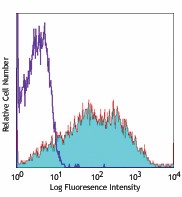
-

LPS-stimulated (2 days) C57BL/6 mouse splenocytes stained with PO3 APC
| Cat # | Size | Price | Quantity Check Availability | Save | ||
|---|---|---|---|---|---|---|
| 105113 | 25 µg | 76€ | ||||
| 105114 | 100 µg | 228€ | ||||
CD86 is an 80 kD immunoglobulin superfamily member, also known as B7-2, B70, and Ly-58. CD86 is expressed on activated B and T cells, macrophages, dendritic cells and astrocytes. CD86 along with CD80 are the ligands of CD28 and CD152 (CTLA-4). CD86 is expressed earlier in the immune response than CD80. CD86 has also been shown to be involved in immunoglobulin class-switching and triggering of NK cell-mediated cytotoxicity. CD86 binds to CD28 to transduce co-stimulatory signals for T cell activation, proliferation, and cytokine production. CD86 can also bind to CD152, also known as CTLA-4, to deliver an inhibitory signal to T cells. The PO3 antibody has been shown to block autoantibody production in vivo and inhibit T cell activation in vitro.
Product DetailsProduct Details
- Verified Reactivity
- Mouse
- Antibody Type
- Monoclonal
- Host Species
- Rat
- Immunogen
- BALB/c mouse B leukemia cell line BCL1
- Formulation
- Phosphate-buffered solution, pH 7.2, containing 0.09% sodium azide.
- Preparation
- The antibody was purified by affinity chromatography, and conjugated with APC under optimal conditions.
- Concentration
- 0.2 mg/ml
- Storage & Handling
- The antibody solution should be stored undiluted between 2°C and 8°C, and protected from prolonged exposure to light. Do not freeze.
- Application
-
FC - Quality tested
- Recommended Usage
-
Each lot of this antibody is quality control tested by immunofluorescent staining with flow cytometric analysis. For flow cytometric staining, the suggested use of this reagent is ≤ 0.25 µg per 106 cells in 100 µl volume. It is recommended that the reagent be titrated for optimal performance for each application.
- Excitation Laser
-
Red Laser (633 nm)
- Application Notes
-
Additional reported applications (for the relevant formats) include: in vivo and in vitro blocking 1,4,5 of autoantibody production and T cell activation, stimulation of B cell activity3, immunoprecipitation2, and immunohistochemical staining2 of acetone-fixed frozen sections.
-
Application References
(PubMed link indicates BioLegend citation) -
- Nakajima A, et al. 1995. Eur. J. Immunol. 25:3060.
- Nuriya S, et al. 1996. Int. Immunol. 8:917.
- Kasprowicz DJ, et al. 2000. J. Immunol. 165:680.
- Saito K, et al. 1998. J. Immunol. 160:4225.
- Nakajima A, et al. 1998. J. Immunol. 161:1901.
- Ma XT, et al. 2006. Cancer Research 66:1169.
- Lawson BR, et al. 2007. J. Immunol. 178:5366.
- Bhatnagar S and Schorey JS. 2007. J. Biol. Chem. doi:10.1074/jbc.M702277200.
- Giroux M, et al. 2007. J. Immunol. 179:4492.PubMed
- Product Citations
-
- RRID
-
AB_313167 (BioLegend Cat. No. 105113)
AB_313167 (BioLegend Cat. No. 105114)
Antigen Details
- Structure
- Ig superfamily, 80 kD
- Distribution
-
B cells and T cells (upregulated upon activation), macrophages, dendritic cells, and astrocytes
- Function
- T cell costimulation, Ig class-switching, NK cell cytotoxicity
- Ligand/Receptor
- CD28, CD152 (CTLA-4)
- Cell Type
- Astrocytes, B cells, Dendritic cells, Macrophages, T cells, Tregs
- Biology Area
- Cell Biology, Costimulatory Molecules, Immunology, Neuroscience, Neuroscience Cell Markers
- Molecular Family
- CD Molecules, Immune Checkpoint Receptors
- Antigen References
-
1. Barclay A, et al. 1997. The Leukocyte Antigen FactsBook Academic Press.
2. Hathcock KS, et al. 1993. Science. 262:905.
3. Freeman GJ, et al. 1993. Science. 262:907.
4. Carreno BM, et al. 2002. Annu Rev Immunol. 20:29. - Gene ID
- 12524 View all products for this Gene ID
- UniProt
- View information about CD86 on UniProt.org
Related FAQs
Other Formats
View All CD86 Reagents Request Custom Conjugation| Description | Clone | Applications |
|---|---|---|
| PE anti-mouse CD86 | PO3 | FC |
| Purified anti-mouse CD86 | PO3 | FC,IHC-F,IP |
| FITC anti-mouse CD86 | PO3 | FC |
| APC anti-mouse CD86 | PO3 | FC |
| PE/Cyanine7 anti-mouse CD86 | PO3 | FC |
| Alexa Fluor® 700 anti-mouse CD86 | PO3 | FC |
| Brilliant Violet 421™ anti-mouse CD86 | PO3 | FC |
| Brilliant Violet 605™ anti-mouse CD86 | PO3 | FC |
| PerCP/Cyanine5.5 anti-mouse CD86 | PO3 | FC |
| APC/Fire™ 750 anti-mouse CD86 | PO3 | FC |
Customers Also Purchased
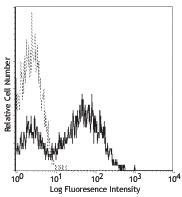
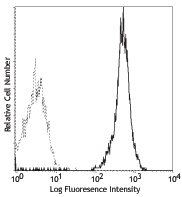
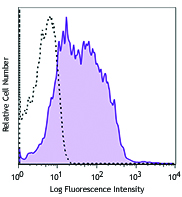
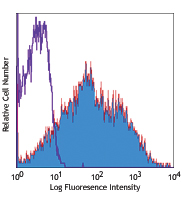
Compare Data Across All Formats
This data display is provided for general comparisons between formats.
Your actual data may vary due to variations in samples, target cells, instruments and their settings, staining conditions, and other factors.
If you need assistance with selecting the best format contact our expert technical support team.
-
PE anti-mouse CD86
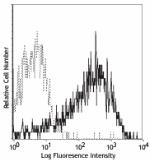
LPS-stimulated (3 days) BALB/c splenocytes stained with PO3 ... -
Purified anti-mouse CD86
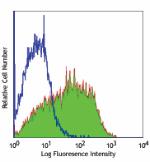
LPS-stimulated (2 days) C57BL/6 mouse splenocytes stained wi... -
FITC anti-mouse CD86
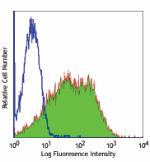
LPS-stimulated (2 days) C57BL/6 mouse splenocytes stained wi... -
APC anti-mouse CD86
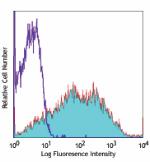
LPS-stimulated (2 days) C57BL/6 mouse splenocytes stained wi... -
PE/Cyanine7 anti-mouse CD86
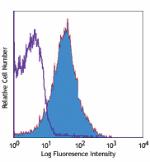
C57BL/6 mouse splenocytes stained with PO3 PE/Cyanine7 -
Alexa Fluor® 700 anti-mouse CD86
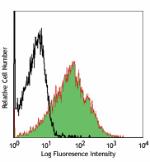
LPS-stimulated (day-3) C57BL/6 mouse splenocytes stained wit... -
Brilliant Violet 421™ anti-mouse CD86
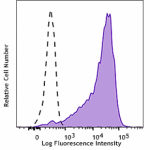
LPS-stimulated (3 days) mouse splenocytes stained with CD86 ... -
Brilliant Violet 605™ anti-mouse CD86
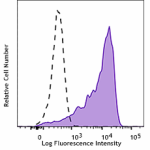
LPS-stimulated (3 days) mouse splenocytes stained with CD86 ... -
PerCP/Cyanine5.5 anti-mouse CD86
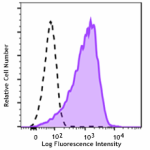
LPS stimulated (3 days) C57BL/6J splenocytes were stained wi... -
APC/Fire™ 750 anti-mouse CD86
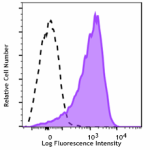
LPS stimulated (3 days) C57BL/6J splenocytes were stained wi...

 Login / Register
Login / Register 













Follow Us